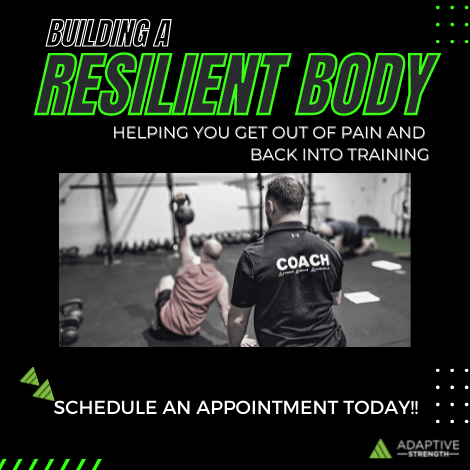When visiting my physio the other day, we started chatting about client care, rehab and exercise.
I get along well with him and have a very similar thought process. So, it allows me to have some pretty open discussions with him as he is doing a little “maintenance work” on my body.
We were talking about client treatments, expectations and the challenges he faces in meeting the expectations.
Most people that present to him have been in pain of some time. Whether it is back pain, ankle pain, shoulder pain, the pain has been there for a long time. In many cases months before they go see the physio.
Unfortunately it is just the way the system works. Someone hurts their shoulder. They rest a few days to a week. The pain is still there, so they finally go see a doctor. The doctor normally gives them some sort of anti-inflammatory medication (NSAID) and then advice to rest even further.
If they still have pain after another 1-2 weeks, they return to the doctor. This time they get a referral to do some scans to see if there is any structural damage. They wait a week to get an appointment for the scan (X-ray, ultra sound etc) and then another week to go back to the doctor for the results.
In most cases the scans show no structural damage. At this stage 6 weeks that have passed.
6 weeks of pain and 6 weeks of “rest”.
At this stage they are either referred to a “specialist” or told to go see a physiotherapist.
This is where the irony starts.
For some reason they have been content to wait the 6 weeks before seeing the physiotherapist. But as soon as they see the physio they expect it to get fixed in one or two sessions.
It is a little bit of a paradox.
Then you have the other extreme of having for example back pain for 6-12 months. Finally seeing a physiotherapist and expecting he can fix it in a few sessions.
It really appears we are living in a world where everyone wants everything immediately.
Did you know? There is a huge correlation between being overweight and back pain.
We have fast food restaurants on every corner, the ability to shop on our phones, live streaming sports events and nearly everything we need at our fingertips. Throw into the mix the plethora of junk food that is available for us to purchase and consume and it’s really no wonder that, we continue to get more and more overweight and obese.
Because everything is so convenient, the output required to get things we want is minimal, if not zero. Instead of walking to the store, or spending a few hours trotting around a mall doing some shopping, we order our groceries online and buy new clothes and furniture at the click of a button.
Instead of putting in the time and energy prepping for and cooking a family dinner, we call up the pizza guy or swing by a McDonald’s and pick up a cheap meal for the family.
All this convenience may seem nice but combine that with all the junk we consume and it’s no wonder the current health status of Australia is subpar.
The health risks of being overweight and obese are frightening. The heavier you are, the higher your chance of getting type 2 diabetes, having heart disease and high blood pressure, and cancers such as colon, kidney and breast.
Those that are lucky enough not to get any chronic disease are still at risk of “minor” conditions like ankle, knee and back pain. I say “minor” as in comparison to the chronic diseases, but anyone who is living with long term back pain knows how agonizing this can be and how much this can affect quality of life.
Obesity is not just prevalent among adults, either, as it is slowly creeping up in children as well.
Overweight children are more prone to becoming and remaining overweight adults.
According to the World Health Organization (WHO), 2.8 million people die each year due to repercussions of being overweight or obese. While overweight and obese individuals were mostly seen in countries with high-incomes, we are now seeing this health epidemic in low and middle income countries as well.
Although pharmaceutical companies are all racing to create the latest and greatest obesity drug, it’s no secret that diet and exercise are vital in helping control this growing epidemic.
As human nature tends to sway, however, most people would rather take a pill than put in the work to improve their health.
It is important to take responsibility for your own health and wellbeing. By being informed and taking an active role in your health, you can help decrease your chance of becoming another statistic.





